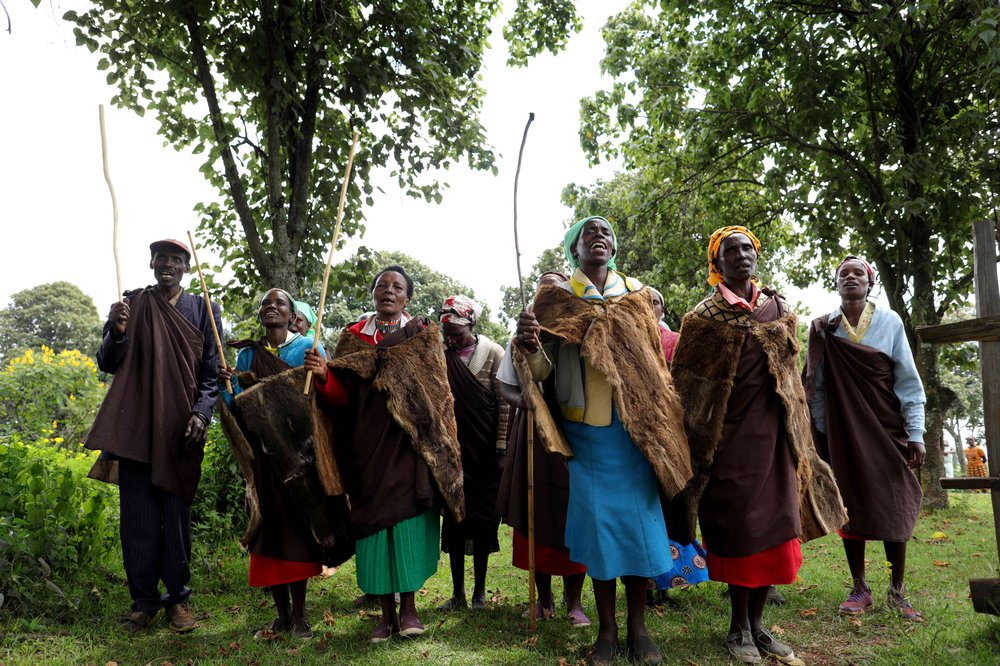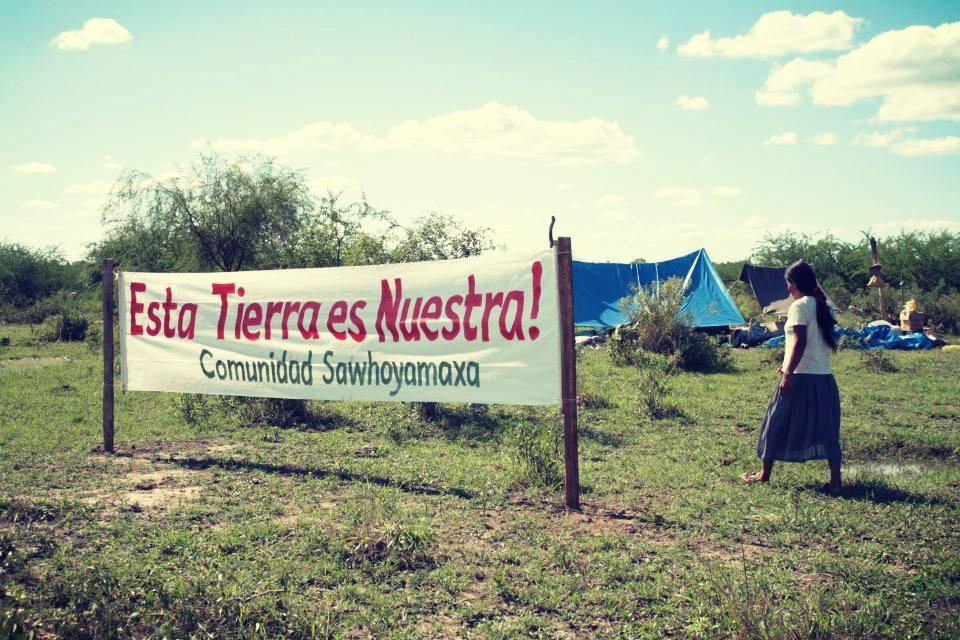In this historic public interest case, the African Court on Human and Peoples’ Rights found in favor of the Ogiek indigenous community of Kenya, and held that the Kenyan government had violated seven rights under the African Charter of Human and Peoples’ Rights. This decision significantly strengthens progressive jurisprudence on land rights and indigenous people’s rights.
In October 2009, the Kenya Forestry Service issued an eviction notice requiring the Ogiek, a forest-dwelling community and one of Kenya’s most marginalized indigenous peoples, to leave the Mau Forest within 30 days. In November 2009, Ogiek Peoples’ Development Program (OPDP) joined by Centre for Minority Rights Development (CEMIRIDE) and later by Minority Rights Group International (MRGI), sent a communication to the African Commission on Human and Peoples’ Rights (Commission), arguing that the eviction violated several provisions of the African Charter on Human and Peoples’ rights (Charter), including the right to property (Article 14), freedom from discrimination (Article 2), right to life (Article 4), freedom of religion (Article 8), the right to culture (Article 17(2) and (3)), the right to freely dispose of wealth and natural resources (Article 21), the right to development (Article 22), and Article 1 (which obliges all member states of the Organization of African Unity to uphold the rights guaranteed by the Charter).
For decades the Ogiek have consistently confronted arbitrary forced evictions by the government from their ancestral land in the Mau Forest. This pattern of violations has had a hugely negative impact on their traditional lifestyle. The Ogiek depend on the forest for food, shelter, livelihood, and identity. The October 2009 eviction notice has thus been characterized in the case as a ‘perpetuation of historical injustices suffered by the Ogieks’ which had not been resolved by the Kenyan state, despite several legal challenges in the domestic courts and advocacy with the Kenyan authorities.
For one of the first times in institutional history, the Commission referred the case to the African Court on Human and Peoples’ Rights (Court) on the basis that there was evidence of serious or massive human rights violations. On May 26, 2017, following an eight-year long process, the Court issued a judgment upholding the land-related rights of the Ogiek people and finding violations of each of the rights claimed except for the right to life.
On the right to property, the Court expressed that the Ogiek had a communal right to their ancestral land, and that the expulsion of the Ogiek from this land against their will and without prior consultation, violated their property rights guaranteed by the Charter, and read in light of the UN Declaration of the Rights of Indigenous Peoples.
The Court also found that the government’s failure to recognize the Ogiek’s status as a distinct tribe, as afforded to other similar groups, denied them the rights available to other tribes, and thus amounted to discrimination. In referencing the work of the Commission through its Working Group on Indigenous Populations/Communities in Africa, and the work of the UN Special Rapporteur on minority issues, the Court analyzed various criteria to identify indigenous populations and determined that the Ogiek community could be recognized as an indigenous population that is part of the Kenyan people, with a particular status deserving of protection deriving from their vulnerability.
The Court stated in no uncertain terms that the preservation of the forest could not justify the lack of recognition of the Ogiek’s indigenous or tribal status nor the denial of the rights associated with that status, and explicitly confirmed that the Ogiek could not be held responsible for the depletion of the Mau Forest nor could it justify their eviction or the denial of access to their land to exercise their right to culture.
The Court further determined that, because of the Ogiek’s connection between their land and their ability to practice their religion freely, the evictions of the Ogiek from the Mau Forest constituted an interference with the freedom to practice their religion. Given the Ogiek’s distinct ties between the land and their cultural practice, their eviction from the Mau Forest also violated the right to culture. In assessing the right to use and dispose of wealth and resources, such as land, the Court concluded that, so far as it had already determined the Ogiek’s rights to their ancestral land and that those rights had been violated, the eviction clearly violated the right to access and occupy the land. Finally, the Court held that the Ogiek’s continuous evictions from the Mau Forest had significantly impacted their economic, social, and cultural development, and therefore their right to development had also been violated.
The Court ordered the government to take all appropriate measures within a reasonable timeframe to remedy the violations.
In a 2022 follow-up decision, the African Court on Human and Peoples’ Rights determined which reparations are owed. The decision reinforces progressive jurisprudence on land rights and Indigenous Peoples’ rights by providing actual remedies for harm and means of ensuring those remedies are implemented.
The Court decided to determine pecuniary losses equitably, based on amounts awarded in similar cases under the Inter-American Court of Human Rights for similar “systematic violation[s] of their rights.”
The Court also ordered that the Ogiek are owed restitution of their lands via delimitation, demarcation, and titling of their land in order to clarify and reinforce which areas of the Mau Forest are traditionally and effectively Ogiek land. While the State argued that the right to use and access land is not the same as ownership, the Court determined that the land must be legally owned by the community and clearly demarcated as such in order to adequately protect the community from further violations. Each Ogiek community is entitled to hold title to their land in accordance with the 2016 Community Land Act enacted by Kenya. For any land that has been leased by the State to non-Ogiek people, if an amicable agreement regarding the land’s use cannot be made, the State must either return the land to the Ogiek or compensate the Ogiek for the loss.
The Court made additional non-pecuniary reparations decisions along the general theme that the Ogiek ought to be part of processes that concern them and their ancestral land. The Ogiek are owed the right to effective consultation and dialogue regarding decisions that affect their ancestral land, and in fact the State is obligated under international law to consult them in this way in accordance with the notion of free prior and informed consent. The Court determined that the State must involve the Ogiek, in a culturally-appropriate manner, at all stages of development plans that could affect them, in such a way that the Ogiek can make informed decisions about whether or not to accept a proposed development.
While the Court determined in its 2017 decision that the Ogiek are an Indigenous People and part of the Kenyan people, and while the State subsequently created a Task Force to determine with the Ogiek how to best effectuate that recognition, the Task Force has heretofore been ineffective in making real change for the provision of services or political representation for the Ogiek. The Court therefore ordered the State to take more effective measures within the next year to guarantee the full recognition of the Ogiek as an Indigenous People, including protection of their language and religious practices. Additionally, a Community Development Fund for the Ogiek must be put in place, funded by the reparations money ordered here, and overseen by a committee that includes members of the Ogiek community.
The State’s agreement to guarantee non-repetition of the evictions the Ogiek suffered is to come in the form of substantive measures, such as those ordered here by the Court.
Significance of the Case:
There are multiple intersecting rights at stake in this case, many of which have been further given redress due to the court’s ruling. The court ruling seeks, to the extent possible, to repair the State’s illegal land-grab with just compensation. In its determinations regarding non-repetition, this ruling further reinforces State obligations to consult Indigenous persons, given the principle of the right to free, prior and informed consent, before any project that might affect their ancestral territories. The reparations may also highlight regenerative land practices in the Mau Forest, underpinned by the custodianship of Indigenous Peoples with respect to their territories. Finally, the reparations awarded in this case seek to safeguard the Ogiek’s cultural rights for generations to come. Additionally, the Court’s decision that State conduct prior to their becoming party to the Charter could be taken into account to allow for an adequate assessment of comprehensive reparations sets an important precedent for all international human rights bodies regarding temporal competence.
Content related:
- Kenya: UN expert hails historic reparations ruling in favour of indigenous peoples, United Nations (July 18, 2022)
- A Milestone For Indigenous Rights: African Court Of Human And Peoples’ Rights Awards Reparations To Ogiek People Of Kenya, Human Rights Pulse (Oct. 16, 2022)
- African Commission on Human and Peoples’ Rights v. Republic of Kenya, ACtHPR, Application No. 006/2012 (2017), ESCR-Net (Oct. 29, 2017)
- African Commission on Human and Peoples’ Rights v. Republic of Kenya, Judgment, Application No. 006/212


